Q&A with Author Scott Carpenter
- SUBSCRIBE
- ALREADY SUBSCRIBED?
BECOME A BONJOUR PARIS MEMBER
Gain full access to our collection of over 5,000 articles and bring the City of Light into your life. Just 60 USD per year.
Find out why you should become a member here.
Sign in
Fill in your credentials below.
Scott Dominic Carpenter is the author of French Like Moi: A Midwesterner in Paris. His bio tells us that on his way to academia he “staggered from one bizarre job to another” including “house painting, uranium mining, factory work, slave labor in a French château, coastline preservation in Brittany, every imaginable aspect of the restaurant industry, and small engine repair” among other things.
He now teaches literature and creative writing at Carleton College in Northfield, Minnesota. He recently took the time to answer Janet Hulstrand’s questions about “French Like Moi” in this interview for Bonjour Paris.
Janet Hulstrand: When did you buy your apartment in Paris? And how long had you been coming to Paris on a regular basis before that? Also, how much time do you spend in Paris now, and do you plan to eventually live there full-time?
Scott Dominic Carpenter: Goodness! We bought the apartment over 10 years ago now. The anecdotes in the book start with that sabbatical year, but they then glide into more recent events. For example, the chapter “Too Soon, Too Close” deals with the 2015 terrorist attacks.
Otherwise, I’d been coming to Paris part-time for years — indeed, nearly three decades. Sometimes for a month or two, sometimes for most of a year — but always living in rented hovels. I still have the apartment, though going back and forth right now is, um, challenging. I don’t plan to move to France 100 percent; I rather like having my life divided between two places.
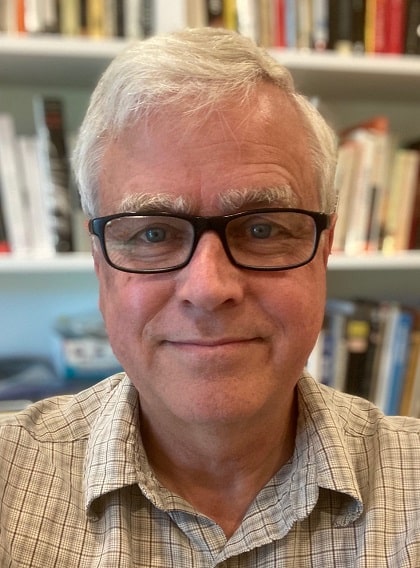
Scott Carpenter. © Scott Dominic Carpenter
JH: What made you decide to take the bold step of becoming a homeowner in France? You’ve described some of the adventures of this bold step quite humorously in your book. Do you ever have moments of wishing you hadn’t done it?
SDC: Well, at this very moment I’m trying to deal with water damage from the apartment above me, handling it all by phone during Covid, so there are definitely times I question the sanity of buying that apartment. But my wife and I grew so tired of living in expensive-but-shoddy apartments during our stays in Paris — patio furniture in the dining room, cardboard boxes for dressers — that I realized we had to take the plunge. That kind of living is charming when you’re a student. It becomes humiliating as you get older!

Parisian apartment, (C) Unsplash
JH: You mention in the book that when you were a kid you were “dragooned” by your parents into studying French. Can you say a bit more about that? Why did they do such an outrageous thing? And how and why did you eventually come to inflict the same treatment on your wife and daughter? Looking back now, would you have it any other way?
SDC: My predicament wasn’t as horrible as it sounds. We moved a lot when I was a kid, and my parents always chose schools where they offered French for some godforsaken reason. (Neither of them studied French.) I didn’t know I had a choice, so I just shut up and spoke it. That said, I came to love it.
As for subjecting my kids to it — we also have a son, but he was headed off to college about the time the book begins — it worked out pretty well. Unlike my own childhood, where we moved from A to B to C to D, etc., with my kids we just went back and forth between Paris and Minnesota. So they had friends and contacts and a “home base” in both places. Looking back, they are both glad to have had the experience, and they still do a lot with French.
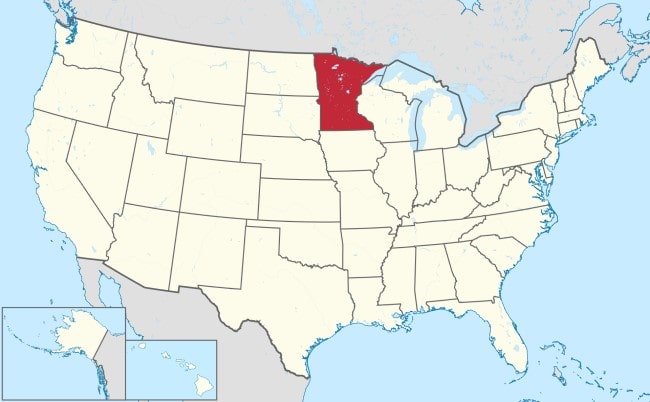
Map of the United States with Minnesota highlighted. (C) CC BY-SA 3.0
JH: You’re from Minnesota (so am I), and the subtitle of your book is “A Midwesterner in Paris.” I’m curious: what would you say is the most profound difference between these two very different kinds of people, Parisians and Minnesotans? And do they have anything in common?
SDC: Glad to be in dialogue with a fellow Minnesotan!
It’s hard to generalize about the differences between Minnesotans and Parisians, but then, generalizing is also fun. In some wild, extreme way, Parisians feel like they should be at the top of the world, and it bugs them when they are not. Minnesotans pretend to be self-effacing, unworthy types, and it bugs them when people accept this self-assessment. Parisians are aggressive, while Minnesotans are passive-aggressive.
What do they have in common? Well, I suppose a few snippets of genetic code. Oh, and they both have very keen senses of irony (although the irony is slightly different).

A collection of books. A little time. A lot of learning. (C) Unsplash
JH: You’re a French teacher, and one of the pleasures of your book is some of the comments you make about the ever-present, intricate traps that the French language puts in the way of those intrepid enough to want to master it. Do you have any advice for people who are about to embark on the challenge of learning French? Or those who are already deeply involved in it?
SDC: My biggest suggestion is this: Chill. People get their knickers in a twist about French. Heck, even the French get their knickers in a twist about French. (Just propose a dictée at a dinner party and watch everyone blanch.) But no one ever masters any language. We are all mastered by the language. You’ll do best if you roll with the punches and realize that it’s okay if you’re not perfect — because the French make loads of mistakes, too!

(C) Unsplash
JH: Your academic background is in 19th century French literature. Do you have a favorite French writer from that period, or from any other period for that matter? Also, do you have any advice for those who would like to read French literature in the original? Perhaps some authors who are best for readers whose French is good enough to read literature, but not so good that it could be called effortless?
SDC: Great question! A huge inspiration for me is the poet Charles Baudelaire, who wrote a wonderful collection of prose poems about urban experience.
As far as reading French in the original, there are some great classics done in “français facile” — simplified French. A good place to start would be the “français facile” versions of the Arsène Lupin stories made popular in the recent Netflix series “Lupin,” with Omar Sy.
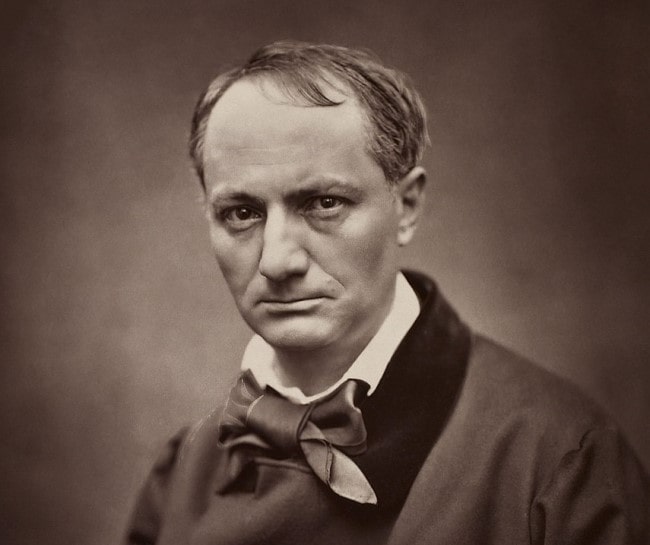
Charles Baudelaire by Étienne Carjat, 1861. Public domain
JH: You’re very funny. Who are your favorite humorists, especially humorists who write about France?
SDC: Thank you! I have to say, I love David Sedaris. 98 percent of his stuff is hilarious, and 30 percent of it is moving. If you do the math, you’ll see there’s some overlap.

David Sedaris. (C) CC BY-SA 4.0
JH: What is the hardest thing about writing humor?
SDC: That’s a very hard question! I mean, I guess it depends. Humor always has to do with making fun of something or someone, and making fun of people has become dangerous business. Luckily, I am mostly making fun of myself, which is easy because I can be such an idiot.
JH: Any advice for Midwesterners who may be planning their first trip to France? Or maybe even contemplating making a move here?
SDC: Advice for travelers: leave your guidebook in the hotel one day and just go out and discover things. Get on a random bus and ride it to its terminus. Then ride it back. You’ll see unexpected things. Guidebooks remove all the surprises from experience, and surprise is where most of the fun is.
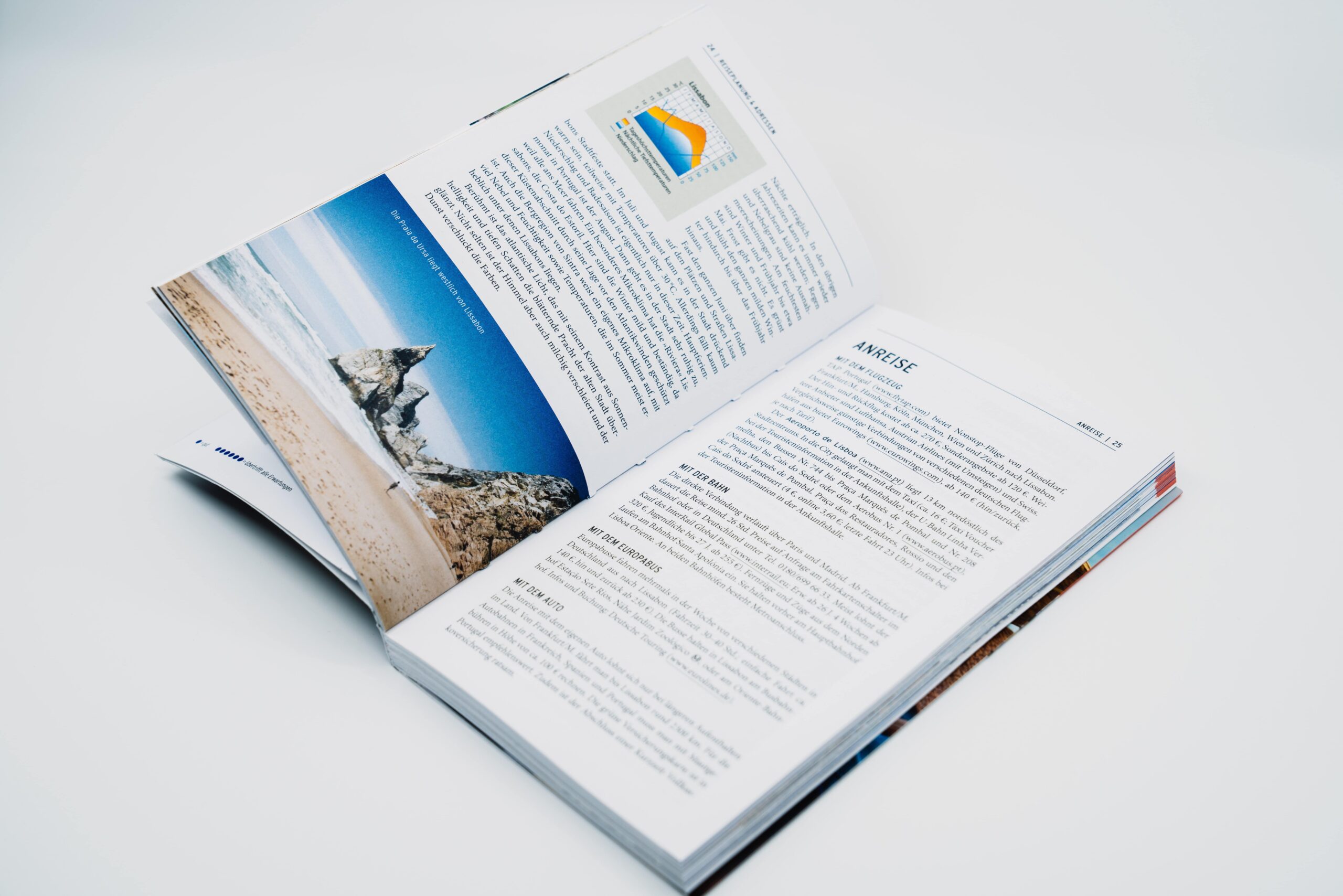
Guide Book. (C) Unsplash
JH: When you bring students to Paris what do you hope they will learn, other than French of course?
SDC: So many things! I hope they learn how to live in a world capital. I hope they learn how to “read” a city. I want them to see what it’s like to be an outsider — to struggle with language, culture, laws, rules. All these things make us more empathetic about people in our own country who struggle as outsiders of one sort or another. I also think they will learn a lot about English and about the U.S. by being outside of it for a while.
JH: You say that you wanted to get under the surface of Paris, and show the “real” Paris in your book, not the idealized, romantic city so many accounts of Paris focus on. You do that quite literally in one fascinating chapter, where you describe the experience of going through the catacombs with a “cataphile.” I must confess this chapter has made me want to ask you, is this book REALLY all “nonfiction”? Also, is Paris really about to cave in on itself?!
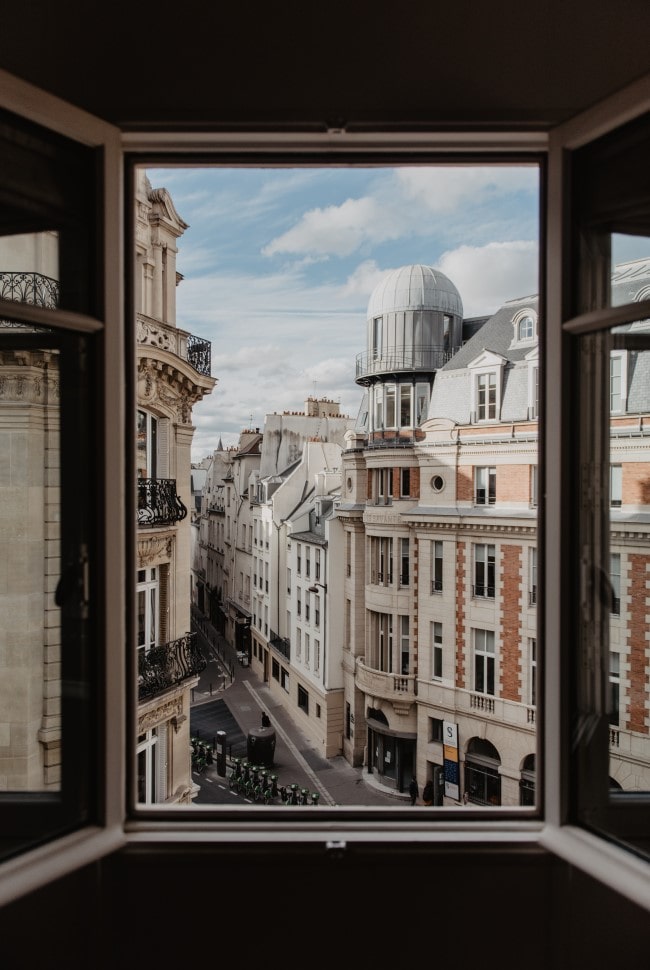
Paris. (C) Unsplash
SDC: Haha! YES, Paris is caving in on itself all the time. There are not any major sinkholes anymore, but in my neighborhood the consolidation des sols people are pouring in cement on a regular basis. And YES, I did visit the catacombs. I have spent about 20 hours down there and have traversed some 80 kilometers of it.
The incidents in the book are definitely true. Of course, I have to reinvent some dialogue that I don’t remember verbatim, and I leave some things out that become too complicated for a story. But as Balzac wrote (in English!) in Le Père Goriot: “All is true!”
JH: At the end of one of your chapters, you write “Maybe that’s the essence of Paris: it keeps you turning, confronts you with yourself, always leaving you a touch off balance.” What continues to fascinate — or maybe mystify — you about Paris?
SDC: I’m amazed at how much things change in Paris. Some things seem eternal (although I guess that’s what we thought about Notre-Dame Cathedral…). But otherwise there is a lot of churn. Always something new. I love it that each day I will try to do something small and normal, and it is likely to lead to an unforeseen adventure. Paris is l’imprévisible!
Lead photo credit : What is your story sign. (C) Unsplash
More in author interviews, books, Interview, Novel, Paris, review
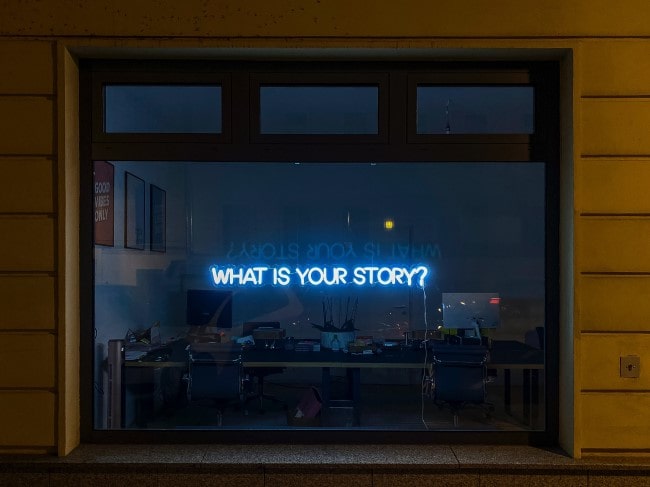





REPLY